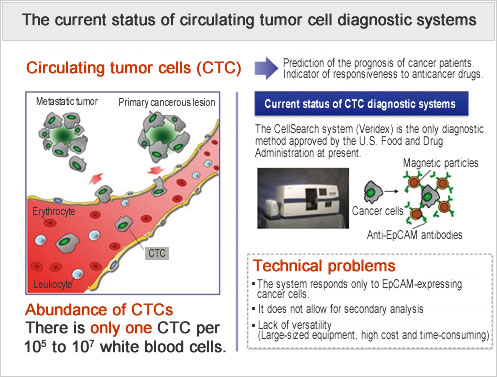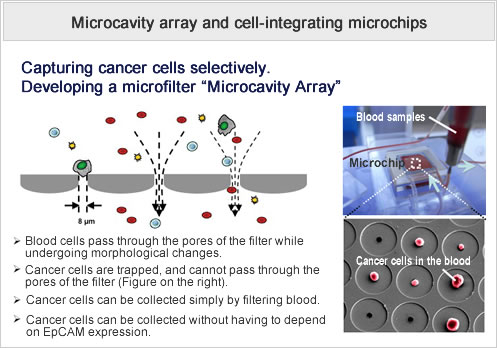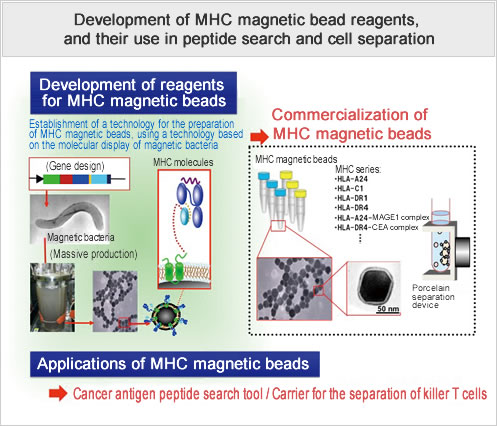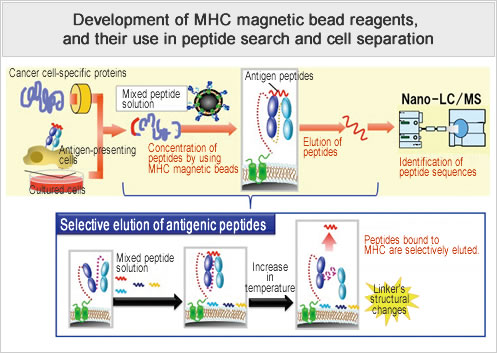Home > Research themes > Establishment of a bio-chip technology for early diagnosis and treatment of cancer
Main content starts here.
Establishment of a bio-chip technology for early diagnosis and treatment of cancer
Tomoko Yoshino, Associate Professor of Bio-Function and Bioprocesses at the Institute of Engineering, Tokyo University of Agriculture and Technology
(FY2010-2012)
Aims and Expected Results of Research
The aim of this research is to develop a technology allowing for a high-precision detection and collection of blood circulating tumor cells (CTC), and to commercialize the system as a cancer diagnosis device in the form of microchips.
In addition, in this study, we also develop technologies for the preparation of magnetic beads (MHC magnetic beads) allowing for an isolation of killer T cells, a detailed analysis of cancer cells collected by using techniques such as the ones described above, and a high-efficiency screening of cancer antigen peptides. Our purpose is to develop commercial reagents and kits based on these.
Progress made during previous years
Regarding the microchips, we have finished the test production of a prototype of the commercial product, and have completed the preparations for a comprehensive evaluation. Regarding the development of MHC magnetic beads, we have completed the test production of magnetic bead reagents.
FY2012 results
- A performance evaluation of disposable microchips was conducted on clinical samples, and showed good results. In addition, we are also working on the stabilization of performance and the reduction of the costs of diagnosis.
- We have evaluated the performance of each type of MHC-expressing magnetic bead reagent that we have developed; and the results have demonstrated that the reagents allowed for an isolation of the target antigenic peptides alone from mixed peptide solutions.
The results of this study have made it possible to develop new tools that can be used effectively in the future in cancer immunotherapy, as well as in systems aimed at the early diagnosis of cancers.






